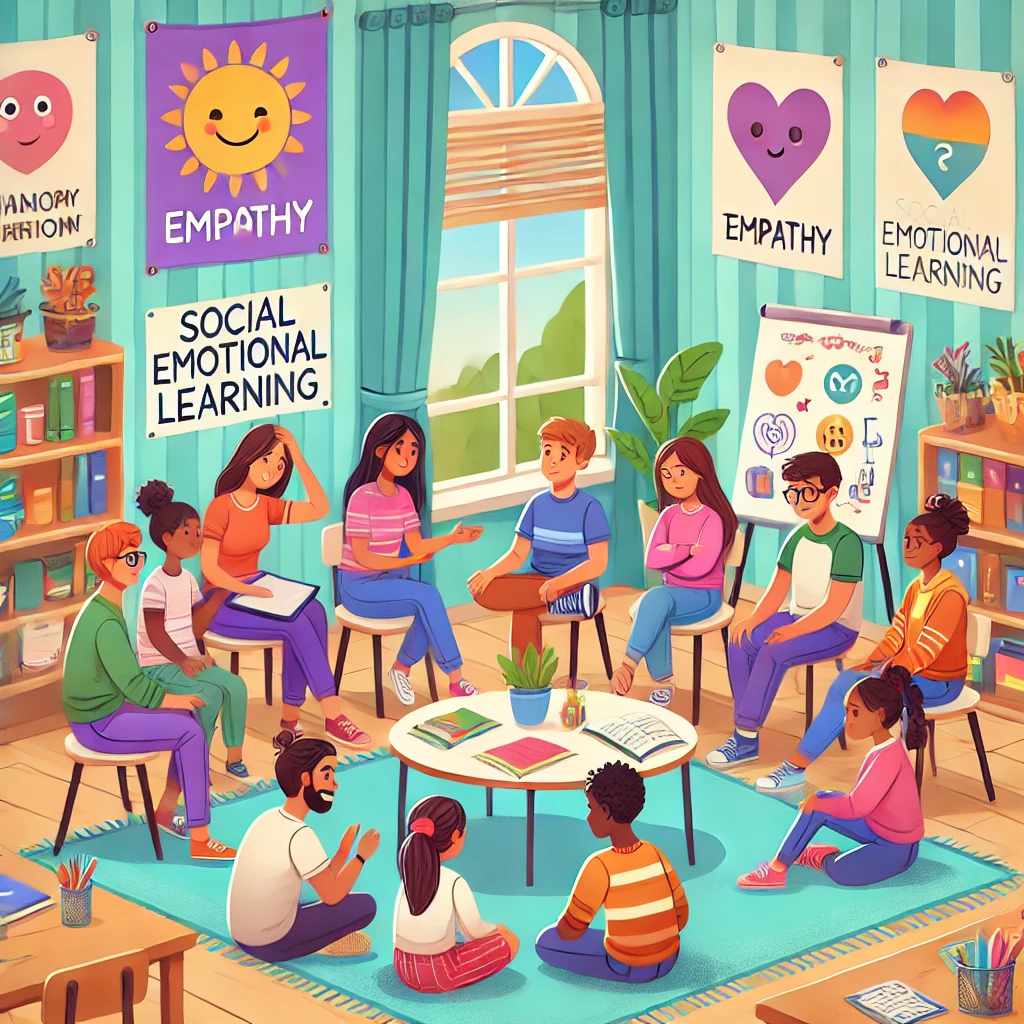I worked as an elementary counselor for 5 years and can attest that teaching social-emotional learning is not a priority in public schools. I would say Covid brought the focus on teaching social-emotional learning (SEL). But what exactly is SEL, and why is it so important? As we delve into this topic, we will explore how SEL can significantly impact children’s development, academic success, and overall well-being.
Understanding Social-Emotional Learning
Social-emotional learning is how children and adults learn to manage their emotions, establish positive relationships, and make responsible decisions. It encompasses five core competencies: self-awareness, self-management, social awareness, relationship skills, and responsible decision-making. These competencies work together to help individuals navigate the complexities of life with resilience and empathy.

Enhancing Academic Performance
We have so much research that shows students who engage in social-emotional learning programs tend to perform better academically. SEL helps children develop critical skills such as focus, perseverance, and a growth mindset. When students feel emotionally secure and supported, they are more likely to engage in their learning, participate actively in class, and achieve higher grades.
Building Resilience
Life is filled with challenges, and developing resilience is essential for overcoming obstacles. SEL equips children with the tools to cope with stress, manage frustration, and bounce back from setbacks. By learning how to identify and express their emotions, children become more adept at navigating difficult situations, leading to healthier coping mechanisms and a greater sense of self-efficacy.
Fostering Empathy and Understanding
In an increasingly diverse world, empathy is a vital skill. Social-emotional learning encourages children to recognize and appreciate the feelings and perspectives of others. This understanding fosters a culture of kindness and acceptance, reducing instances of bullying and conflict. By cultivating empathy, we help shape compassionate individuals who contribute positively to their communities.
Improving Relationships
Strong relationships are foundational to a fulfilling life. SEL teaches children how to communicate effectively, resolve conflicts peacefully, and collaborate with others. These relationship skills promote teamwork and cooperation, which are essential in both academic settings and future workplaces. By developing healthy relationships, children learn the importance of trust, respect, and connection.

5. Supporting Mental Health
Mental health is an integral part of overall well-being, and SEL plays a crucial role in promoting mental health awareness and support. By encouraging open discussions about emotions and mental health, we create safe spaces for children to express their feelings. This proactive approach can help reduce the stigma surrounding mental health issues and lead to early intervention when necessary.
Conclusion
Social-emotional learning is not just an educational trend; it is a vital component of holistic child development. By integrating SEL into our schools and communities, we are investing in the future of our children—equipping them with the skills they need to thrive academically, socially, and emotionally. As we continue to prioritize SEL, we pave the way for a generation of resilient, empathetic, and successful individuals.
Let us commit to supporting and advocating for social-emotional learning in our educational systems, ensuring that every child has the opportunity to flourish in all aspects of their lives.



